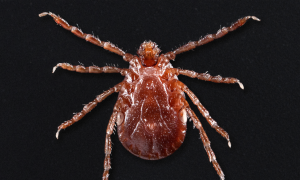New research has found that childhood asthma may take a toll on children’s cognitive development, with early onset of the condition linked to memory deficits.
The study, published Monday in JAMA Network Open, analyzed data from more than 2,000 children and showed that those who developed asthma before age 12 had lower scores on tests of episodic memory than their peers without the chronic respiratory condition.
The findings suggest the effects of asthma on the brain could have long-term implications, potentially increasing the risk of dementia and Alzheimer’s disease later in life.
Impact of Early-Onset Asthma on Cognitive Decline
Asthma is a chronic condition that affects the lungs, leading to attacks triggered by inflammation that constricts the airways, which makes breathing difficult. Approximately 4.6 million children in the United States are affected, according to the U.S. Centers for Disease Control and Prevention (CDC).The new study suggests a “significant” link between asthma and memory difficulties in children, particularly those with early onset of the condition. “Asthma occurring at a younger age, as is the case for the earlier childhood onset group, may be particularly likely to perturb neurodevelopment,” the researchers wrote.
For this research, scientists analyzed data from 2,062 children aged 9 to 10 years with asthma to assess how the condition affects episodic memory and other cognitive measures. Episodic memory, a critical aspect of cognitive function, allows people to remember experiences, events, and emotions.
According to the results, children with asthma scored lower on episodic memory tasks than their non-asthmatic peers. In a smaller sample of nearly 500 children tracked over two years, researchers observed that those with an earlier onset of asthma exhibited slower memory development over time.
This study used data from the Adolescent Brain Cognitive Development (ABCD) Study, a large, ongoing research project that began in 2015.
The ABCD Study enrolled about 11,800 children aged 9 to 10 years old. Parents reported whether their child had asthma. Children who had asthma at the beginning of the study and those who developed it later were compared to those who had never had it. Children with asthma at any point in the study were also compared to those without it. Asthmatic children were matched with similar children without asthma based on factors like age, sex, and other health conditions to ensure a fair comparison.
“This study underscores the importance of looking at asthma as a potential source of cognitive difficulty in children,” Simona Ghetti, a professor of psychology at the University of California (UC)–Davis Center for Mind and Brain and lead author of the study, said in a press statement.
Broader Spectrum of Chronic Diseases Affecting Cognition
“We are becoming increasingly aware that chronic diseases, not only asthma but also diabetes, heart disease and others may place children at increased risk of cognitive difficulties,” Ghetti said. “We need to understand the factors that might exacerbate or protect against the risks.”Childhood is a critical period for cognitive development, and asthma can adversely affect this process. “Childhood is a period of rapid improvement in memory and, more generally, cognition,” said first study author Nicholas Christopher-Hayes, a doctoral candidate in psychology at UC–Davis, in the press release. “In children with asthma that improvement may be slower.”
The research team noted that these memory deficits could have long-term implications. They referenced previous research suggesting a correlation between asthma and increased risk of dementia and Alzheimer’s disease in older adults. “Asthma might set children on a trajectory that could increase their risk to later develop something more serious like dementia as adults,” Christopher-Hayes stated.
While the study did not explore the specific mechanisms contributing to memory difficulties associated with asthma, the researchers highlighted several potential factors. These include prolonged inflammation and repeated disruptions in oxygen supply to the brain during asthma attacks. However, Ghetti explained that other factors might also explain the findings.
She told The Epoch Times that based on studies with rodent models of asthma, it’s known that corticosteroids commonly used to treat asthma symptoms may affect the functioning of memory centers of the brain, including the hippocampus. “However, exact documentation of medication use was not available in this dataset, so we don’t know if our results depend on children’s exposure to corticosteroids or other possible mechanisms,” Ghetti said.
Ghetti noted that the main takeaway of her research is that children who experience asthma may be at increased risk of memory difficulties, which, although subtle, “already manifest in childhood as opposed to being risk factors for cognitive difficulties that may manifest later in life.”














